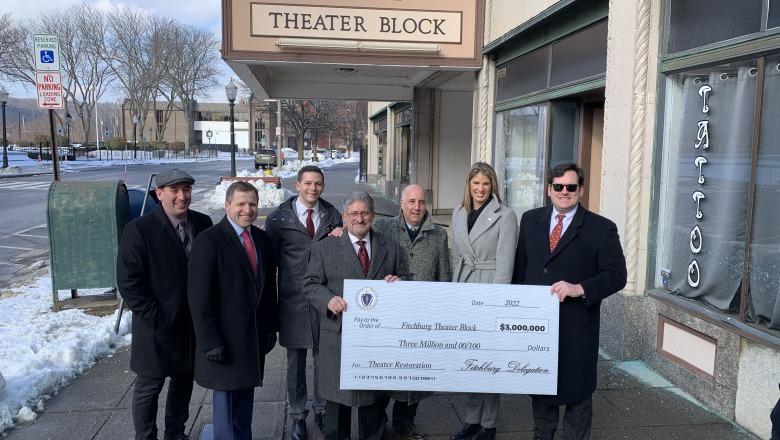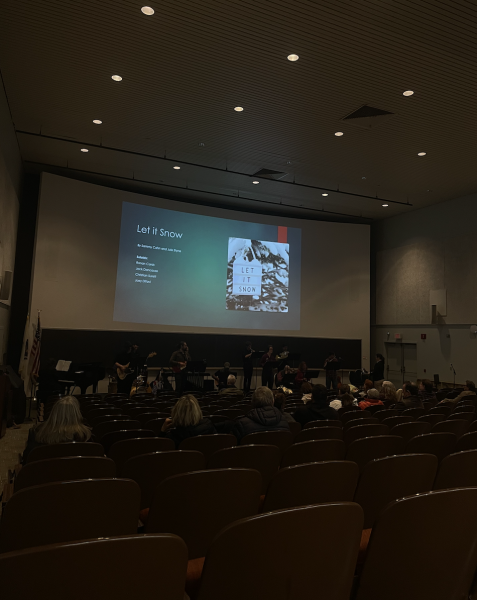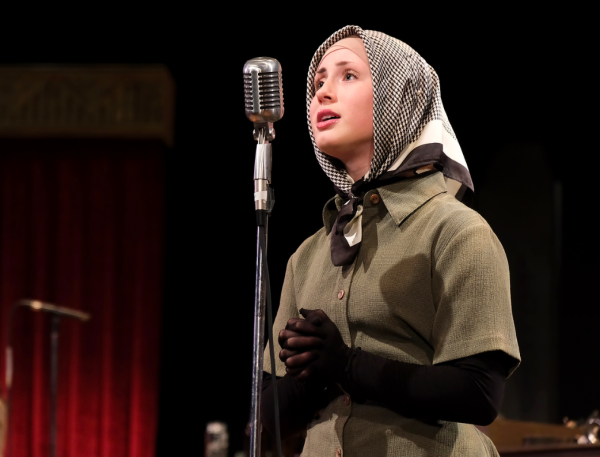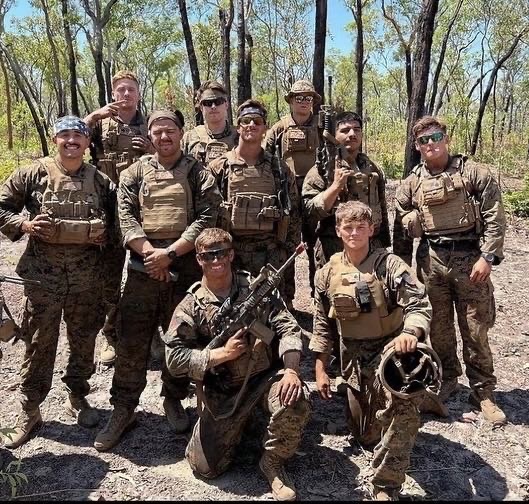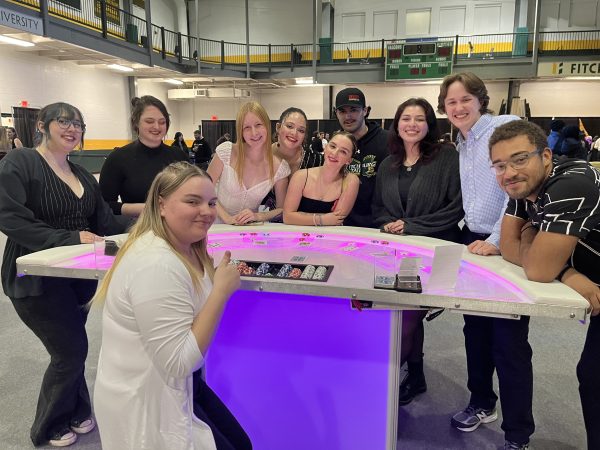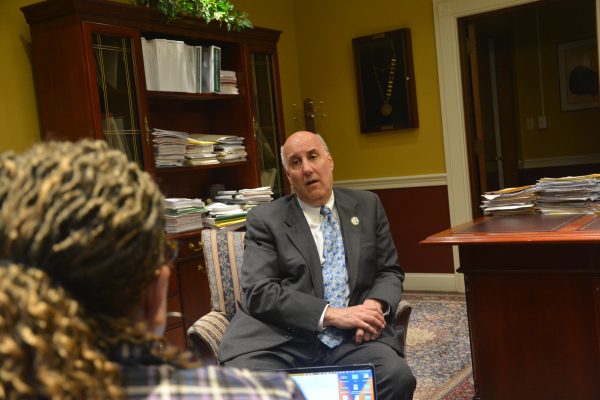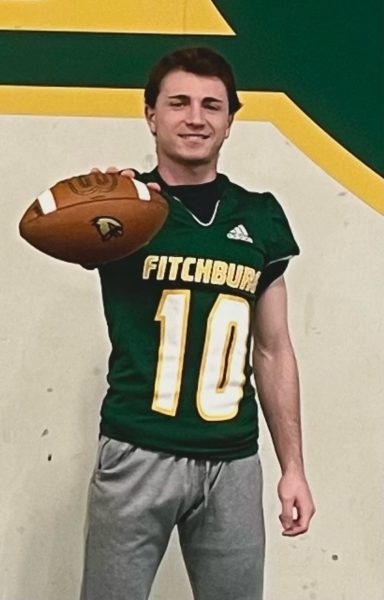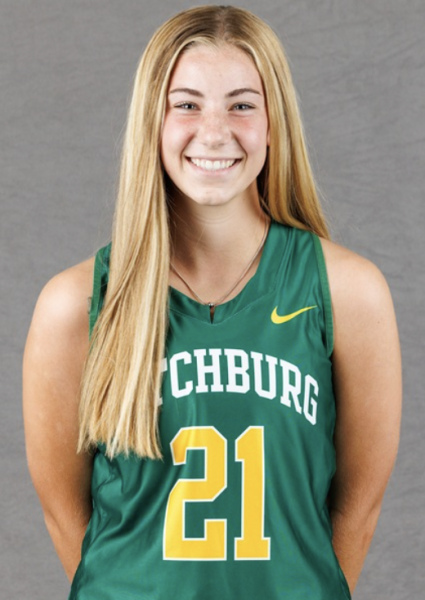“I Hope that the Theater Project will Add Some Vibrancy to the City”: Fitchburg State Receives Federal Support for Next Step in Downtown Theater Block Revitalization
Recently Fitchburg State received a federal grant given for this project of three million dollars for the purpose of the renovation and revitalization of the historic theater block in downtown Fitchburg. This project was decided to be a renovation of the main theater as well as the construction of a black box theater as well as numerous other spaces in the area. Currently, some of the spaces in this theater block are being used by Fitchburg State already, in the form of game labs that students in the game design program utilize for classwork.
“The game design program labs are up and have been up for years, and then attached that is also an incubator space. So that also can be actively used by students. It’s a convening spot,” said Fitchburg State President Richard Lapidus. “There’s classrooms there, there’s a flexible workspace, and so we convene groups there all the time. That might work with students, on a class project that intersects with something that a business might be interested in pursuing.”
In addition to the game labs, Lapidus explained that some local businesses that are being renovated neighbor the theater project.
“There is a set of storefronts if you go down on that block that we are in the process of renovating, and one of those spaces most likely you will see in the fall, as a faculty student gallery space,” said Lapidus. “So there was an interest by art students—both students and faculty—that were interested in taking the work that they were producing, having a place to display it and potentially sell it Like a sort of a consignment gallery.”
In addition to this gallery space, President Lapidus explained that business fronts would be funded in the project in some of the vacant space. He explained how, under the Baker administration, there was money devoted to an underutilized property grant.
“So essentially, Massachusetts was looking for a way for particularly gateway cities, like Fitchburg, to take all this property that was vacant, give them a little bit of a jumpstart with some state funding to make them semi turnkey,” said President Lapidus. “I think that what happens oftentimes with these properties is that while the cost of real estate is low, the cost of renovation is high because you’re dealing with lead and asbestos and all kinds of things. This may make it very, very difficult for a small startup business to get going. So we applied for some of those and they are slowly helping us to build out these storefronts.”
One of the storefronts that is being renovated has been confirmed to be a gallery, with another storefront being a restaurant that will open in the larger space on the theater block.
Similarly to the business spaces that were being funded, President Lapidus also explained potential and current uses for other spaces that would be funded in the project.
“There’s some artist studios that we’re also leasing out, that are sort of part of this project. When we bought the theater, we also were given a donation from a bank that decided that they didn’t want to be on Main Street anymore,” said Lapidus. “So Fidelity donated their building and we turned that into sort of artist studio space that we lease at a very low price for artists in the community that were just looking for a workplace that couldn’t afford a studio.”
President Lapidus also followed this up with a notion of hope for the future of this revitalization project.
“I hope that the theater project will add some vibrancy to the city which would benefit our student body,” he expressed. “If there are questions that I get posed on a regular basis, it is how can the university help to create more opportunities for things to do off campus. I think the challenge for the city has been, what do you do, right?”
Lapidus went on to describe how Fitchburg may be lacking in the terms of number of interesting restaurants; boutiquey, clothing stores; record shops; or any sort of businesses that could be associated with the image of your typical college town.
“Main Street needs something significant that will create some gravitational pull, which in turn would support all the other things up and down Main Street.” Lapidus said.
The timeline for this project is divided into two main sections, the first being the black box theater section.
“I’m hoping that’ll be the end of [2023]—Beginning of [2024]. We’ll have enough funding to make that a go, and I think construction estimates are perhaps two years. The [other] theater project of the renovation of the old historic theater is a bit further out there, that’s a much more costly project, and far, far more complicated,” said Lapidus. “So I don’t have really a timeline for that one yet. The big part depends on how well we do with fundraising and other ways to generate dollars.”
It is estimated that this project will create around 200 jobs during construction and completion of the renovation. When prompted on the future possibility of student employment, President Lapidus commented that he expects there to eventually be jobs available for students as well once the renovation is complete and the theater block opens.


